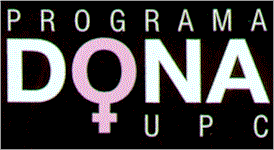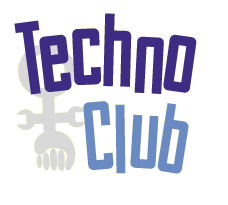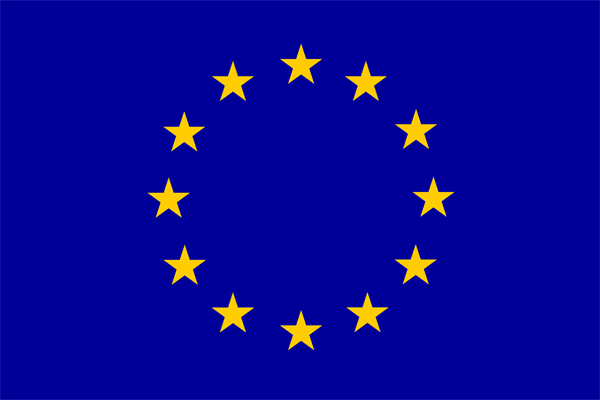VISNET II partners are very serious about addressing the under-representation of women in science, and have implemented some key actions to help improve the situation within their own institutions and on a general VISNET II level. VISNET II partners would encourage all institutions to adopt a similar approach in order to increase the participation of women in technical disciplines. Ultimately these actions could increase the number of women involved in IST research, an objective that is strategically important for the research community - ensuring overall research output is not gender biased.
VISNET II Women's New Media Communications Systems Users Group
The VISNET II Women's New Media Communications Systems Users Group (WNMC Group) was formed in the first year of the NoE lifetime to help address the problems of female under-representation within the IST research community. The group is aimed at increasing the profile of female VISNET researchers, whilst also providing a discussion forum and a central point for links to external women in science organisations equipped to provide information and events specifically for women in IST research.
The WNMC group is currently in contact with the following external organisations, with the view to establish a link:
Group Members
The WNMC group can be contacted by e-mail:
To view a short biography of a member of the group, please use the links below:
Institutional Actions
VISNET II partners have implemented a number of actions on an institutional level. Actions of this nature take place at every institution within the VISNET NoE, these activities include mentoring, student intake activities, women and science promotion, activities to raise gender awareness etc., however, the most prominent activities exist with four partners in particular: Universitat Politècnica de Catalunya (UPC), Technische Universität Berlin (TU-Berlin), Fraunhofer Institute for Telecommunications - Heinrich Hertz Institute (HHI). These activities are summarised below along with a summary of the EC's latest programme to reduce the gender bias both within the EC and in the research community. Links are provided to more detailed information.
To view a summary of an institutional activity, please use the links below:

The purpose of this day is to decrease the distance between young women and technical disciplines. Through a variety of events young women are able to gain an insight into working life and get in touch with HR managers and personnel responsible for traineeships. For this purpose, the participating institutions open their laboratories, offices and editorial rooms to give concrete examples that show girls how interesting and exciting this work can be. Employees are often personally available for discussions. The Girls' day opens up extensive future prospects to a generation of qualified young women, with the objective of establishing contacts and drawing attention of industries and the public to girls' strengths.
The initiative/project currently only operates in Germany, where it is supported by many technical institutions (including VISNET participants TU-Berlin and HHI). In fact on the last girls' day in April 2004 more than 5,300 enterprises and other organisations hosted events which were attended by more than 114,000 young women across Germany.
Click here for more information about the Girls Day.
 
[Top]

Academic and business institutions and society in general should do their best to realise the full technological potential of women. UPC run a programme called 'Programa Dona' which works to connect the technology world with the academic and professional interests of women, and also to achieve equal opportunities in recruitment for technological professions.
The key actions of this programme are:
To bring technological studies closer to young women who have to make a decision about their academic and professional future, through:
Presentations to high school students with the specific aim of increasing female participation. This includes the use of customised AV material, through:
Other education activities which can help girls make positive decisions towards technological studies. Also activities directed towards other agents which influence girls in their decision making, for example:
Click here for more information about Programa Dona.

[Top]

Engineering and sciences are still regarded as male-only professions, often women who have the potential to begin a career in these areas do not take it up because of this. Further more, female role models in technical disciplines are scarce.
Techno club is a project formed at TU-Berlin which deals primarily with 'upper stage' high school students who are interested in studying engineering or scientific courses. The Techno club team consists of one qualified engineer (the project leader) and 6 student tutors (who are currently studying for their degree in an engineering or scientific discipline).
The goals of the project are:
for more information about the Techno Club (in German).

[Top]
The programme promotes a new generation of scientists and artists from German universities of which TU-Berlin is one. The programme addresses the under representation of women in scientific fields, in particular the level of junior and full professors.
The C1/C2 programme targets two groups:
for more information about the C1/C2 programme (in German).

[Top]
This action programme was composed by DG-Admin in consultation with the women and science network at the JRC, and plans to last from 2004-2008. It sets out the proposed institutional actions for equal opportunities within the EC. The specific objectives of the programme are to:
To view a PowerPoint presentation that summarises the programme, please .

[Top]
|



